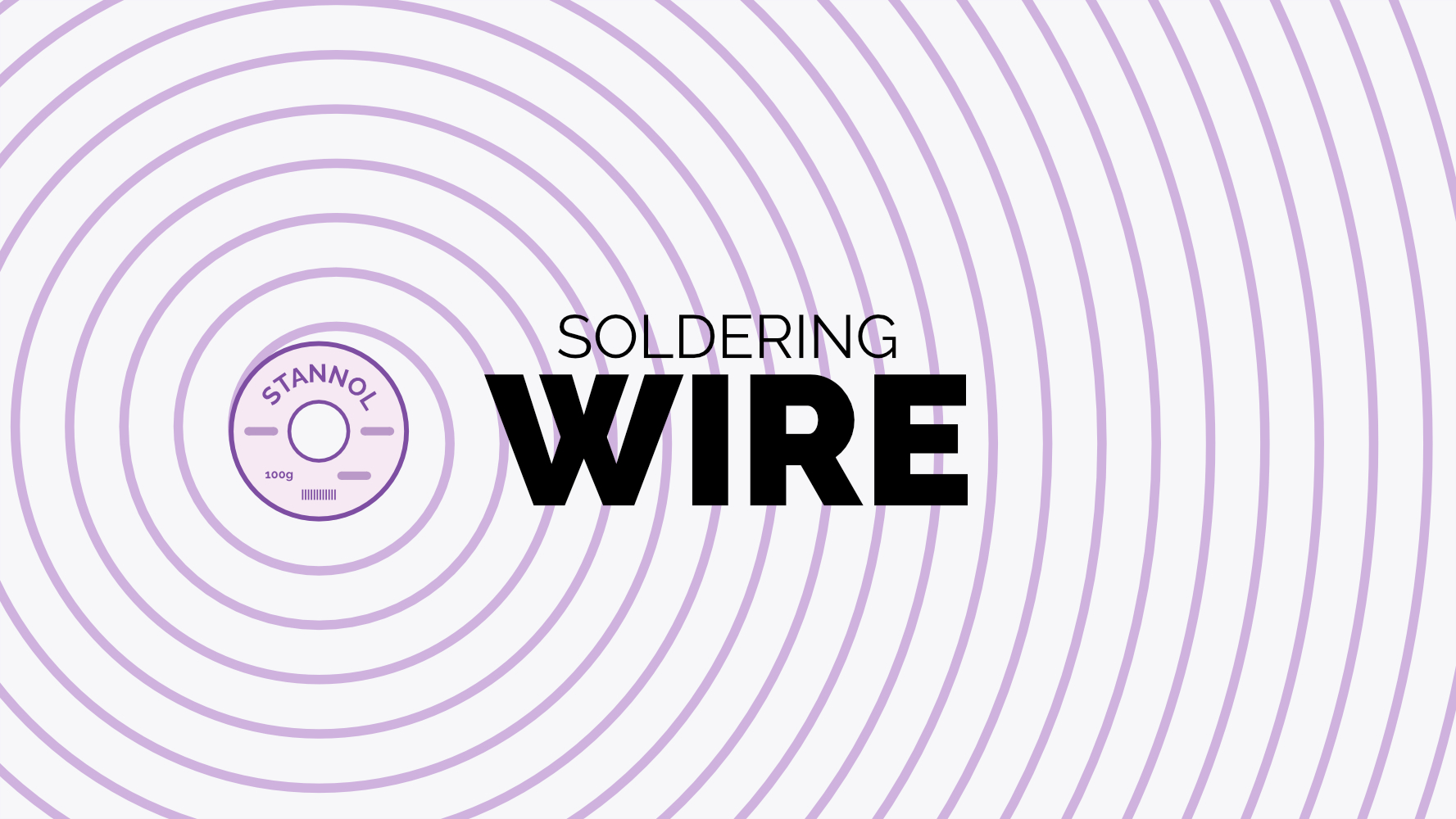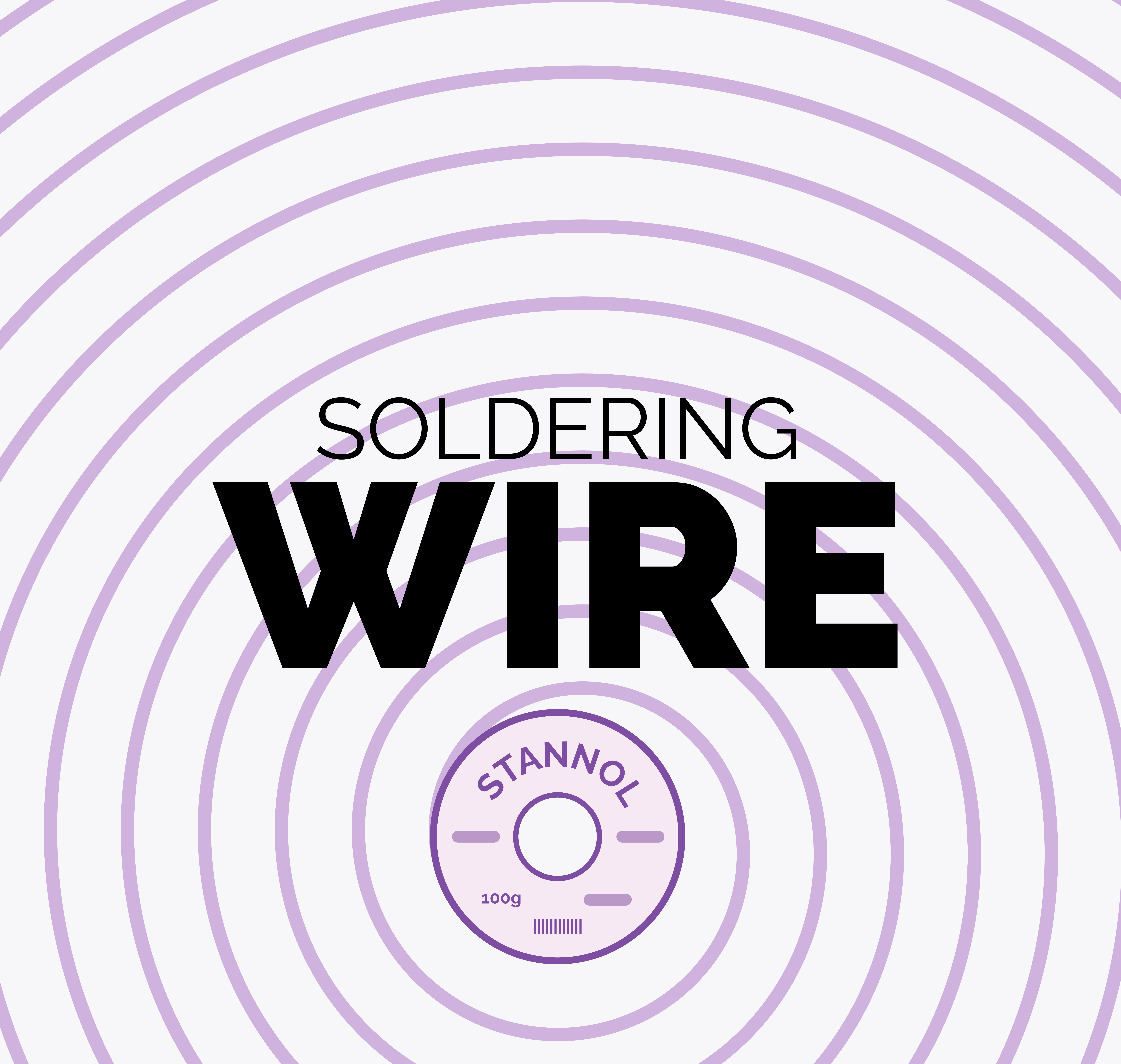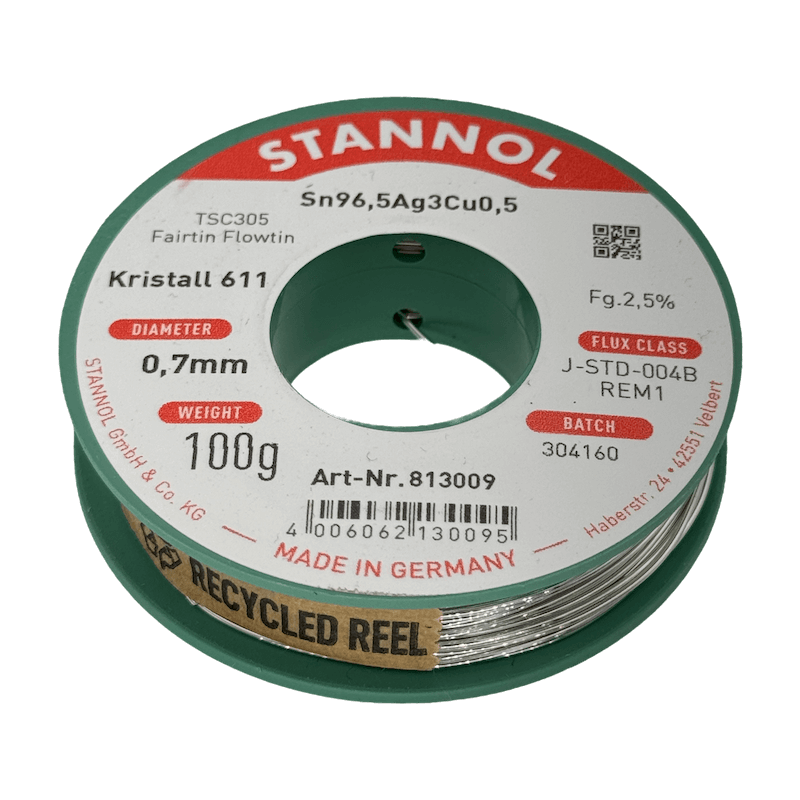

Solder Wire
Choosing the right solder wire is essential for successful DIY synthesizer projects.
Since 2006, leaded solder has been restricted in the EU, so you’ll need to use lead-free solder wire. A common alloy is Sn96.5/Ag3.0/Cu0.5, now widely used as the standard. It is safer for both your health and the environment.
Modern lead-free solder alloys melt and flow perfectly for all DIY projects — there’s no need for outdated, toxic lead-based solder anymore.
For synth building, we recommend Stannol Kristall 611 with a diameter of 0.7 mm. It’s a great all-purpose solder: thin enough for precise work on dense PCBs, yet strong enough for larger connections like jacks or pin headers.

When choosing solder, pay attention not only to the alloy but also to the flux core.
Good flux ensures clean, shiny joints and helps the solder flow
properly. Poor-quality solder, on the other hand, can make your work
unnecessarily difficult. You might end up with dull, brittle joints or
sticky residues that are hard to clean.
In general, it’s worth investing in decent solder. It makes soldering smoother, helps avoid frustration, and ensures reliable connections in your module. It is crucial for stability, audio quality, and long-term durability.
Never mix leaded and lead-free solder, the thermal characteristics will change completely and soldering will be very difficult.
Generally don't solder too hot, you'll find the optimum temperature in the datasheet of your specific solder wire.
available
Solder Wire
Choosing the right solder wire is essential for successful DIY synthesizer projects.
Since 2006, leaded solder has been restricted in the EU, so you’ll need to use lead-free solder wire. A common alloy is Sn96.5/Ag3.0/Cu0.5, now widely used as the standard. It is safer for both your health and the environment.
Modern lead-free solder alloys melt and flow perfectly for all DIY projects — there’s no need for outdated, toxic lead-based solder anymore.
For synth building, we recommend Stannol Kristall 611 with a diameter of 0.7 mm. It’s a great all-purpose solder: thin enough for precise work on dense PCBs, yet strong enough for larger connections like jacks or pin headers.

When choosing solder, pay attention not only to the alloy but also to the flux core.
Good flux ensures clean, shiny joints and helps the solder flow
properly. Poor-quality solder, on the other hand, can make your work
unnecessarily difficult. You might end up with dull, brittle joints or
sticky residues that are hard to clean.
In general, it’s worth investing in decent solder. It makes soldering smoother, helps avoid frustration, and ensures reliable connections in your module. It is crucial for stability, audio quality, and long-term durability.
Never mix leaded and lead-free solder, the thermal characteristics will change completely and soldering will be very difficult.
Generally don't solder too hot, you'll find the optimum temperature in the datasheet of your specific solder wire.
available
These guides are part of our effort to share practical knowledge about DIY synth building, tools, and Eurorack standards. We want them to be as clear and useful as possible, and we know there’s always room for improvement.
If you spot an error, think something could be explained better, or want to share your own DIY tips, please let us know. You can reach us at shop@exploding-shed.com or through our contact page .
These guides are part of our effort to share practical knowledge about DIY synth building, tools, and Eurorack standards. We want them to be as clear and useful as possible, and we know there’s always room for improvement.
If you spot an error, think something could be explained better, or want to share your own DIY tips, please let us know. You can reach us at shop@exploding-shed.com or through our contact page .

